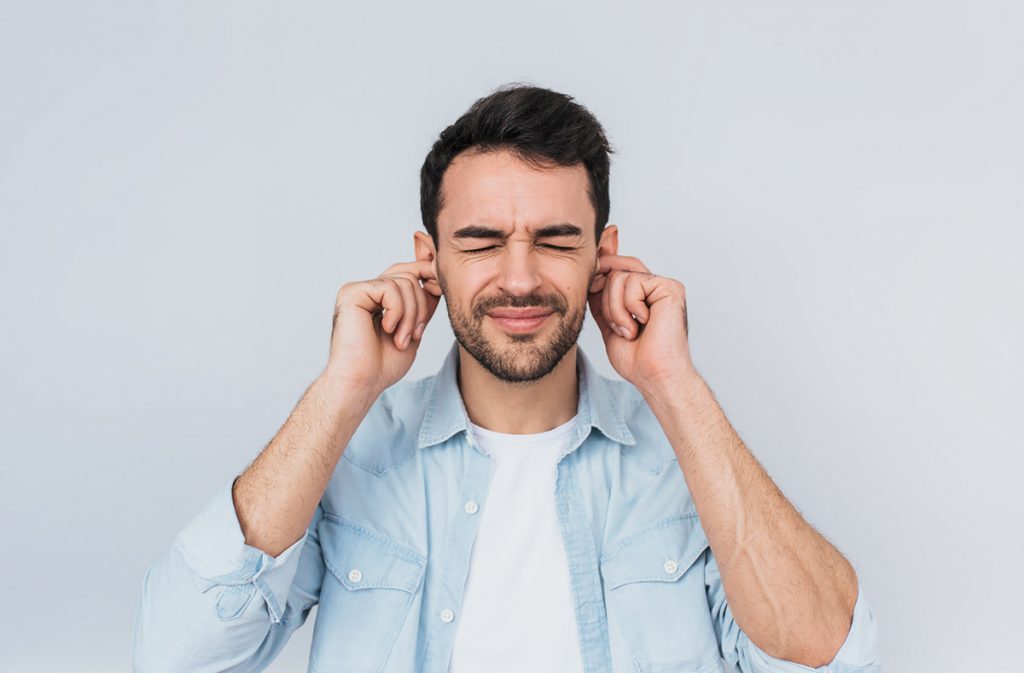Today is George’s first time on an airplane. He’s not nervous, but he is a little excited. As the engines roar, the aircraft picks up speed and altitude. George begins to notice a crackling in his ears every time he swallows. Then he remembers the nugget of flying advice nearly everyone mentioned to him: chew gum. And so George takes out a stick of his favorite brand of chewing gum and pops in two pieces for good measure.
The thing is, George has no idea why he should be chewing gum. (Nor do most people who recommended the practice in the first place.) All they know is that chewing gum seems to stop your ears from crackling, making for a more pleasant flight. But the real credit goes to a neat little feature of your ears.
Your ears and pressure
Turns out, your ears are pretty wonderful at regulating air pressure. Thanks to a handy little piece of anatomy called Eustachian tubes, the pressure on the interior of your ears is able to regulate, adjust, and equalize to the pressure in the outside world.
Usually. There are some instances when your Eustachian tubes might have trouble adjusting, and inequalities in air pressure can cause issues. If you’re ill, for example, or there is a lot of fluid buildup behind your ears you might start suffering from something called barotrauma–an uncomfortable and sometimes painful sensation of the ears caused by pressure differential. This is the same thing you experience in small amounts when flying or driving around particularly tall mountains.
Most of the time, you won’t notice changes in pressure. But when those changes are sudden, or when your Eustachian tubes aren’t working quite right, you can experience fullness, pain, and even crackling in your ears.
Where’s that crackling coming from?
Hearing crackling in your ears is somewhat uncommon in a day-to-day setting, so you might be understandably curious where that comes from. The sound itself is often compared to a “Rice Krispies” style noise. In most cases, what you’re hearing is air moving around obstructions or impediments in your eustachian tubes. The cause of those obstructions can range from congestion to Eustachian tube malfunction to unregulated changes in air pressure.
How to equalize the pressure in your ears
Most commonly, any crackling is going to be caused by a pressure imbalance in your ears (especially if you’re flying, like George is). And if that happens, there are several ways to bring your inner ear and outer ear back into air-pressure-harmony:
- Swallow: The muscles that activate when swallowing will force your eustachian tubes to open, equalizing the pressure. This, by the way, is also why you’re told to chew gum on an airplane; the chewing makes you swallow, and swallowing is what forces the ears to equalize.
- Yawn: For the same reason that swallowing works, try yawning. (If you’re having trouble getting sleepy, just imagine someone else yawning and you’ll probably catch a yawn yourself.)
- Toynbee Maneuver: This is really just a fancy way to swallow. Pinch your nose (so that your nostrils are closed), close your mouth, and swallow. Sometimes this is a bit easier with a mouthful of water (because it forces you to keep your mouth closed).
- Valsalva Maneuver: If you’re still having trouble, try this: pinch your nose shut and close your mouth. But instead of swallowing, try blowing out (don’t let any air escape if you can help it). In theory, the air you try to blow out should pass through your eustachian tubes and equalize the pressure.
- Frenzel Maneuver: Okay, last maneuver. If blowing out doesn’t work, try pinching your nose, closing your mouth, and making “k” sounds with your tongue. You can also try clicking to see if that works.
Devices and medications
If self-administering these maneuvers doesn’t do the trick, there are devices and medications that are specifically designed to help you manage the pressure in your ears. Whether these medicines and techniques are right for you will depend on the root cause of your barotrauma, as well as the severity of your symptoms.
Sometimes that might mean special earplugs. In other cases, that might mean a nasal decongestant. It all depends on your situation.
What’s the trick?
George’s flight was much more comfortable once he was able to equalize the pressure in his ears. For him, chewing gum worked like a charm.
The real trick is finding out what works for you–and your eustachian tubes.

